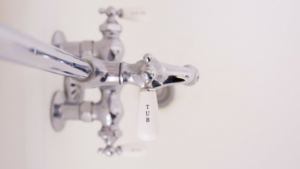2021 How Much Does a Kitchen Remodel Cost?
Are you planning a kitchen remodel this year? The pandemic sparked a lot of home projects. Starting kitchen remodel projects are a much bigger project than people anticipate. The first step to sticking to the budget is understanding the cost of an average kitchen remodel. So, how much does a kitchen remodel cost in 2021? Our Fox Valley home remodeling experts share more about kitchen remodel costs.
Planning a kitchen remodel?
Before the pandemic, a homeowner could spend $4,000 to $47,000 on a kitchen remodel. On average, a typical home remodels project will hover between $11,424 and $29,178. Now that the prices of wood and materials are high, it’s likely that material could be double or even triple of what it was a year ago. Our friends at Headwaters Construction Inc., a Sacramento ground-up construction company, point out that the type of material you choose will determine the cost. Furthermore, the more unique, the more expensive. Things to consider are wall painting, cabinet refacing, kitchen sink upgrades, and the installation of a tile backsplash.
What are the factors that influence your kitchen remodel cost? Where will your budget for a remodel go?
Cabinetry and hardware account for the bulk of the expenses, taking as much as 29 percent of the overall budget. This is followed by installation costs (which usually account for 17 percent of the budget), followed by appliances and ventilation (which account for 14 percent of the budget), and countertops (which take 10 percent of the remodel budget). Other costs include design fees, lighting, flooring, doors and windows, faucets and plumbing, walls and ceilings, and other expenses.
If you want to trim your budget, there are a few areas where you can cut corners. For example, instead of hiring professionals, you can do some of the installation by yourself. Or instead of using custom cabinets for your new kitchen, you can opt for stock cabinets. Another strategy that you can try to keep costs low is to break the project into smaller pieces. This allows you to upgrade your kitchen while spreading the work and expenses across a longer timeline.
What are the other factors that you need to consider when you are planning a kitchen remodel?
One crucial factor that you need to consider is how long you are planning to live in your home. Simply put, if you are planning to sell your home in the near future, you should resist the temptation to splurge. Experts recommend spending somewhere between five to 15 percent of a home’s value for a remodel. Within this range, you can expect to recoup your investment for your kitchen’s upgrade.
You should also consider the average cost of kitchen remodels in your area. If you are planning to sell your home, your kitchen should be within the same range as the other kitchens in your neighborhood. If you over- or under-spend on your kitchen, potential buyers will notice that and might affect the performance of your home in the property market.
On the other hand, if you are not planning on moving out of your current home in the foreseeable future, you can indulge and spend as much as you can afford. You can recoup your investment through the regular use of your kitchen.
If you have questions about kitchen remodel costs, contact the professional plumbers in Fox Cities at Turek’s Plumbing today! Follow us on Instagram and Facebook to stay up to date with our latest plumbing news!
Editor’s note: This post was originally published in September 2016 and has been completely revamped and updated for accuracy and comprehensiveness.




 As spring approaches, homeowners can’t help but think about spring cleaning from purging the garage to decluttering drawers. One aspect of spring cleaning that people tend to forget is the drains. Like everything else, your home’s drains also need to be cleaned.
As spring approaches, homeowners can’t help but think about spring cleaning from purging the garage to decluttering drawers. One aspect of spring cleaning that people tend to forget is the drains. Like everything else, your home’s drains also need to be cleaned. The weather changes that occur during autumn bring several risks for the plumbing system of your home. Preparing your plumbing for this season will help to avert many of those potential problems. The following tips provided by the experienced plumbers at Tureks Plumbing Services in Appleton, WI, will get you underway with this task.
The weather changes that occur during autumn bring several risks for the plumbing system of your home. Preparing your plumbing for this season will help to avert many of those potential problems. The following tips provided by the experienced plumbers at Tureks Plumbing Services in Appleton, WI, will get you underway with this task.
 Do I Need a Whole House Filter?
Do I Need a Whole House Filter?